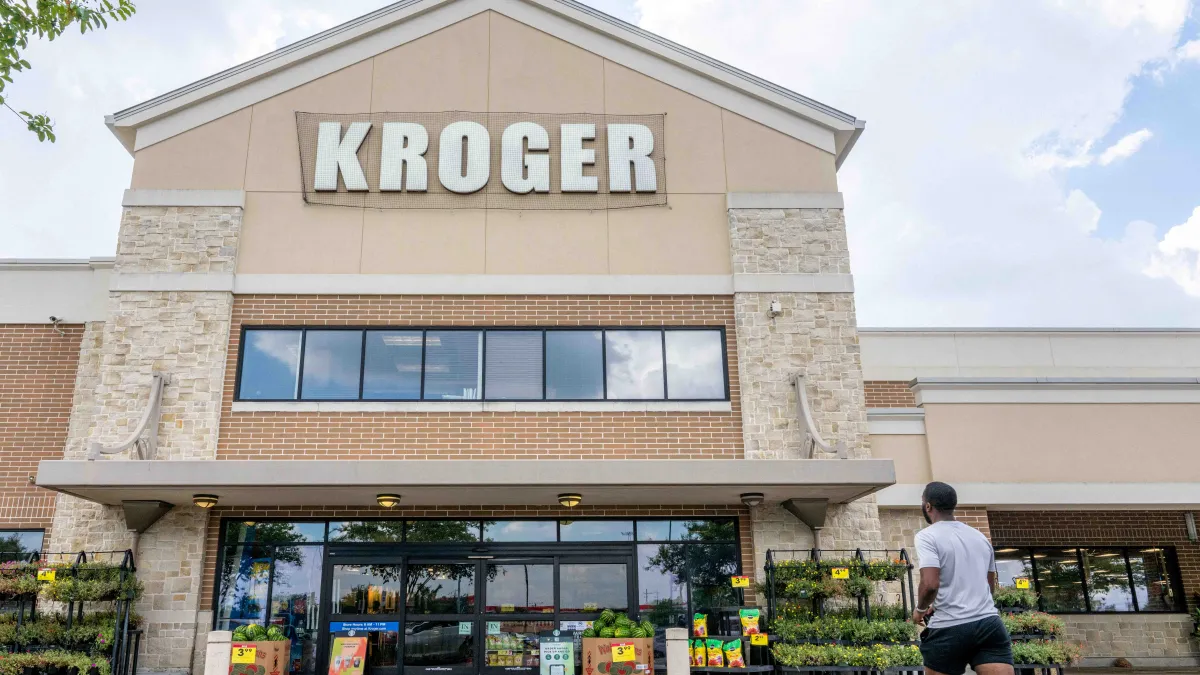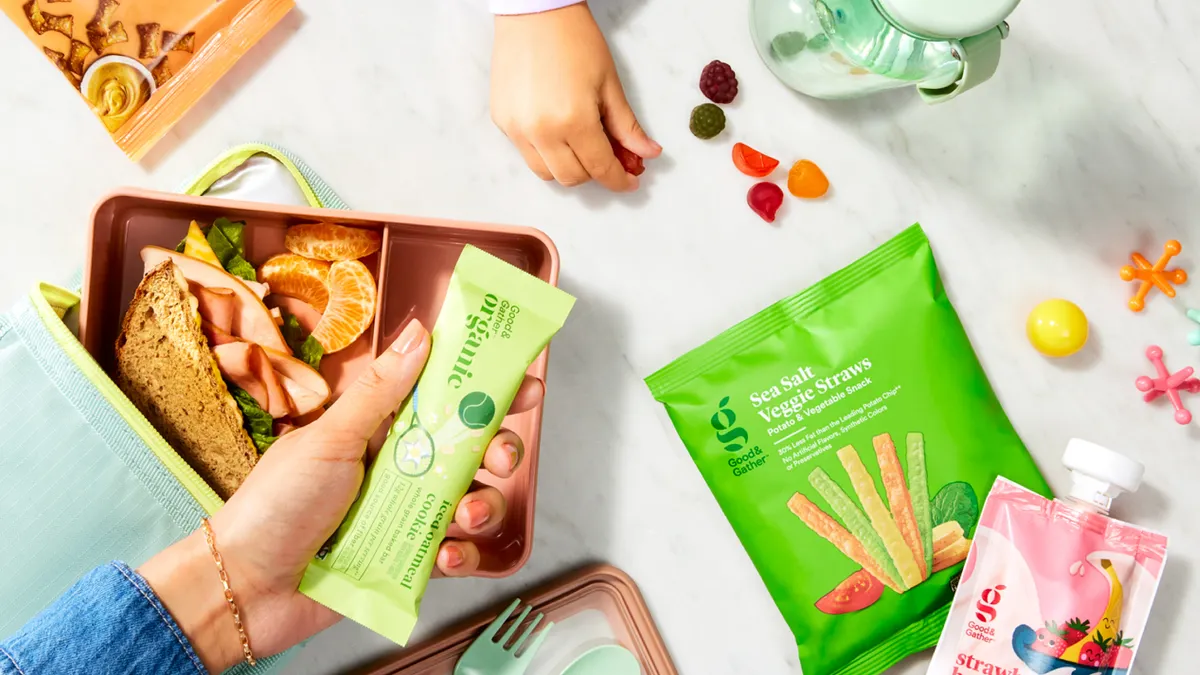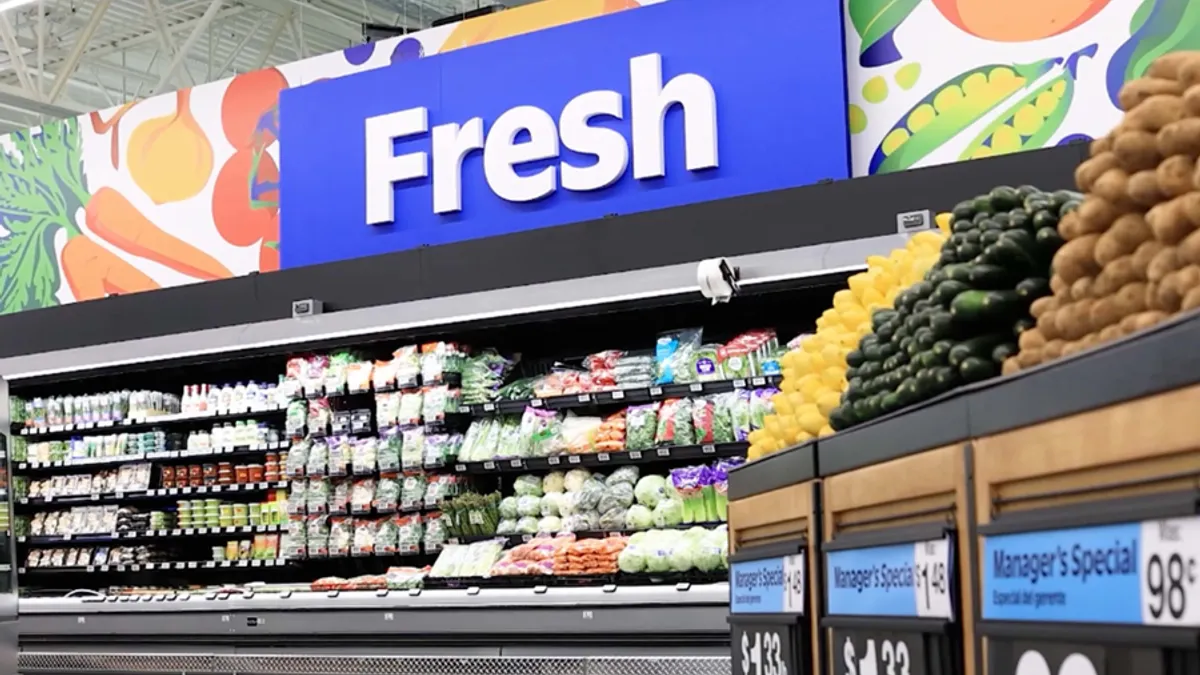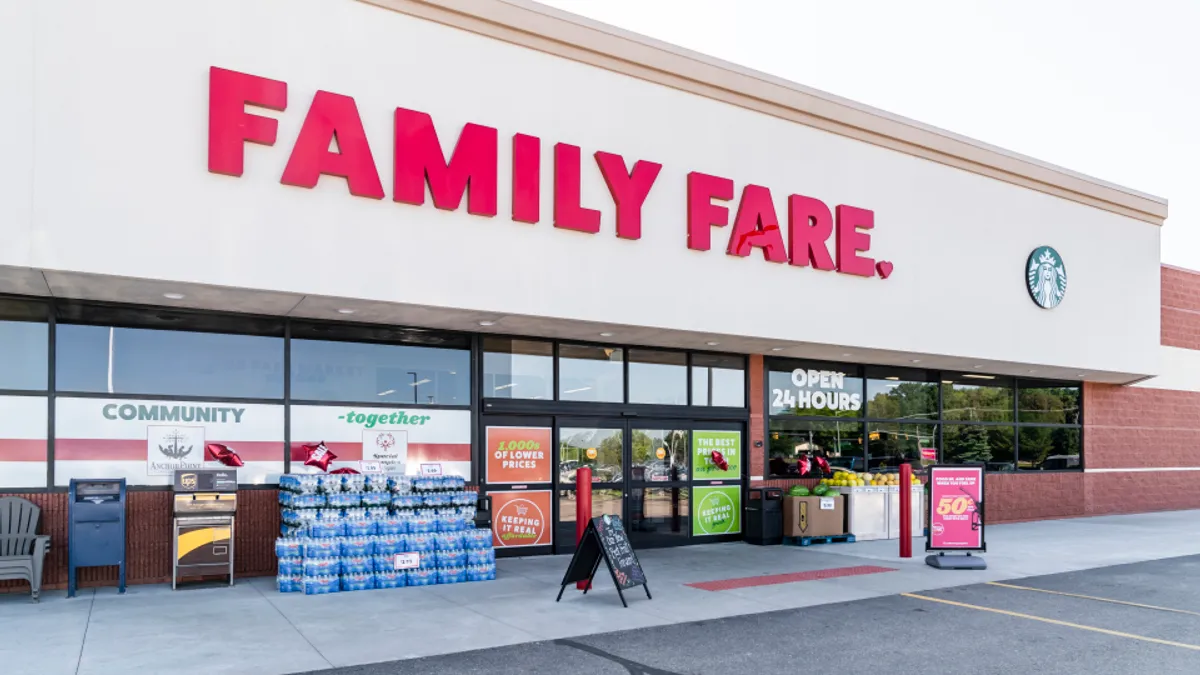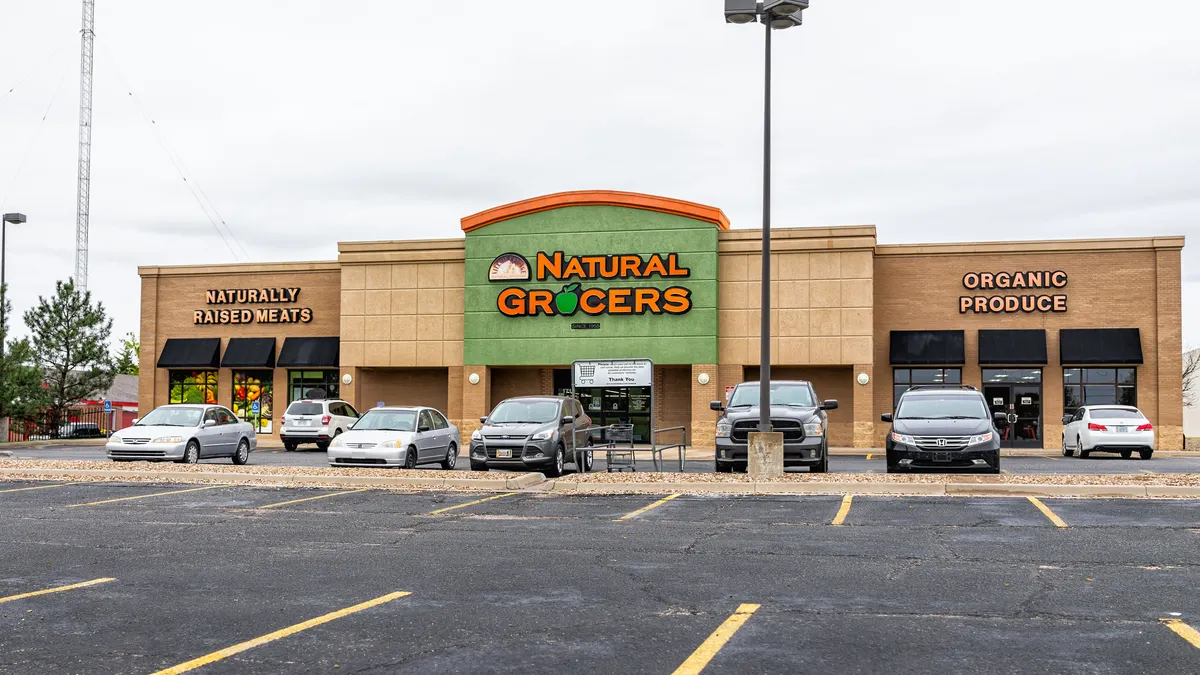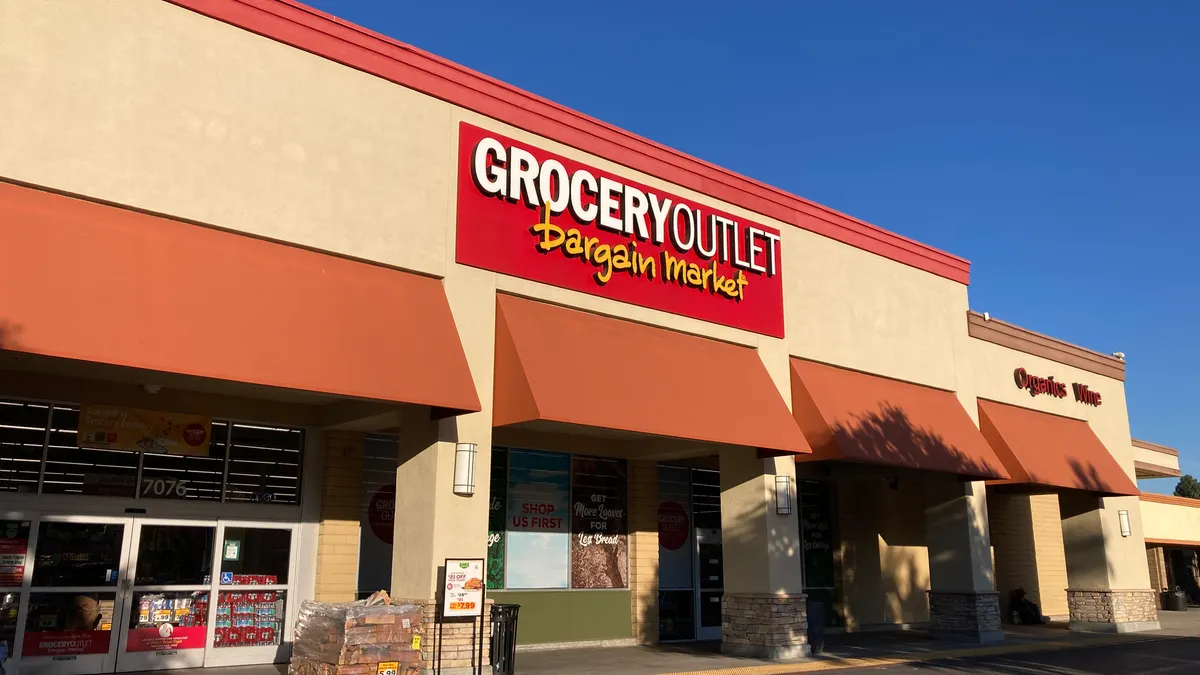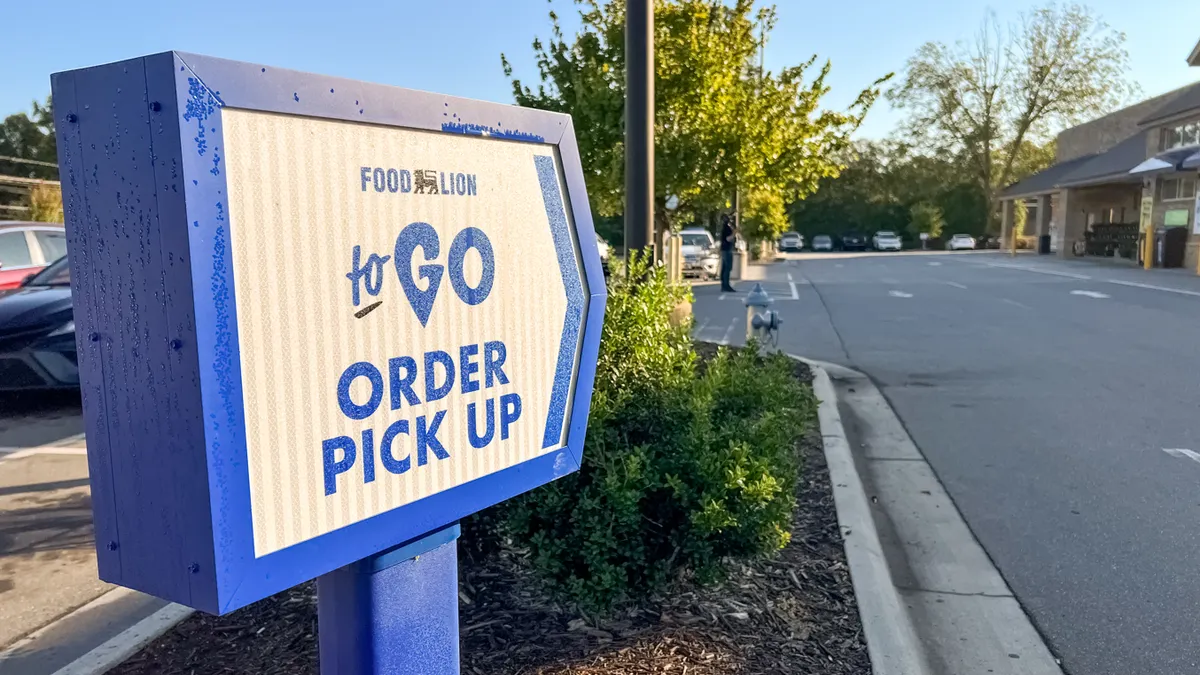As Kroger and Albertsons’ high-stakes battle with the Federal Trade Commission to preserve their planned merger plays out in court, the time they’ve spent trying to combine has emerged as another key challenge for the supermarket companies, according to industry analysts.
In particular, the time Kroger has invested in the merger has distracted its executives during a critical period when the grocery market is shifting rapidly, raising the stakes for the company even as it faces the distinct possibility that it will not be able to complete the nearly $25 billion transaction, said David Halliday, associate teaching professor of strategic management and public policy at the George Washington University School of Business.
“The opportunity cost of pursuing the merger over the past two years has been enormous for Kroger,” which could have instead been devoting more of their attention on priorities like competing with rivals like Walmart and Amazon, said Halliday. “So if the FTC succeeds in blocking the merger, then Kroger has a strategy problem.”
Halliday said that whether or not the merger ultimately goes through, Kroger’s high-profile effort to take over Albertsons calls into question whether the grocer will be able to continue to deploy its time-tested strategy of growing by acquiring other grocery chains. Halliday said Kroger is exposed because it has depended on an “undifferentiated shopping experience” while specialty grocers like Sprouts Farmers Market and Trader Joe’s have made significant inroads with consumers.
Kroger went into the merger review process with a heavy dose of hubris when it would have been better off making more concessions from the start than it did, which could have helped tamp down opposition instead of stoking criticism, said Scott Mushkin, CEO of R5 Capital. For example, Kroger should have offered to bolster its plan to divest stores and other assets to C&S Wholesale Grocers sooner than it did, which could have helped the company deflect criticism of the deal more effectively, he said.
“I think they’ve really approached this merger incorrectly. I think they [could have come] out of the gates being more accommodative to the unions, maybe the FTC and the state attorneys general” that have opposed the merger, Mushkin said. “There was a window where they could have maybe brought people more into their camp that would be naturally opposed to it.”
A Kroger spokesperson defended its approach to handling the divestiture proposal. “Kroger conducted a thoughtful and robust process through an arms-length divestiture plan that would maintain competition and ensure that divested stores and their associates will continue serving their communities in the ways they do today. The comprehensive divestiture plan achieves these objectives,” the spokesperson said in a statement.
The spokesperson added that the company has not allowed its effort to merge with Albertsons to get in the way of its broader corporate objectives: “Since announcing the proposed merger with Albertsons, Kroger has continued to execute on our key pillars to advance our go-to-market strategy and drive long-term, sustainable value for stakeholders.”
Kroger and Albertsons have spent the past two weeks facing off against the FTC in a Portland, Oregon, courtroom, looking to swat aside the agency’s drive to obtain a preliminary injunction to stop them from merging. Regulators have laid out evidence for why they believe the merger would be anticompetitive and should be stopped, and the trial has focused heavily on the FTC’s contention that Kroger and Albertsons’ proposal to divest nearly 600 stores to C&S is insufficient, The Wall Street Journal recently reported.
“The FTC is comfortable showing the harms of the potential merger and also demonstrating that even the parties’ proposed ‘best’ outcome of a merger will prove flawed and ultimately bad for both workers and consumers,” David Schwartz, an antitrust partner in Washington with law firm BCLP and former lead investigative attorney at the FTC, said in comments sent by email.
Arun Sundaram, senior vice president of equity research for CFRA Research, said in an email that he believes there is now only a 20% chance that Kroger will be able to consummate its merger with Albertsons, in part because the FTC has been successful in advancing its case that the combination would eliminate competition in the supermarket industry.
The FTC’s claim that the merger would hurt workers “is a weaker argument, in our view, but showcases the different angles the FTC is taking to prevail,” Sundaram said.
The FTC is also investigating the merger plan through an administrative law tribunal that is taking place concurrently with the trial. In August, Kroger filed a lawsuit claiming that process is unconstitutional. Kroger and Albertsons are also facing state lawsuits filed by the attorneys general of Washington and Colorado aimed at stopping the merger.
The myriad competitive and legal pressures Kroger and Albertsons are facing underscores the importance for the companies of convincing the Oregon judge, Adrienne Nelson, not to issue an order to halt the merger, said Arindam Kar, an antitrust attorney at law firm Polsinelli.
“They probably carry much more of a burden here [than the FTC], not only in the preliminary injunction hearing, but just [in] all the other things that they have to succeed on to truly clear the slate, to say, ‘Yes, we can move forward with our acquisition,’” Kar said about the challenges Kroger faces.
Another issue for Kroger is that even if Judge Nelson rejects the FTC’s bid for an injunction and clears the way for the merger to proceed, the agency could later challenge the combination if it finds evidence that it is anticompetitive, said Jeffery Cross, an antitrust specialist who is of counsel to the law firm of Smith, Gambrell & Russell. Regulators could challenge the merger in the future even if they agree to let it go through, he added.
Mushkin said the time Kroger has lost trying to push the merger through has exacerbated the pressure it faces from Walmart, which has steamed ahead in the grocery sector in recent years. He noted that Walmart has made substantial progress in automating its operations since the merger was announced in October 2022, compounding the competitive pressure the retail giant poses.
In addition, the competition Kroger and Albertsons face from specialty grocers like Trader Joe’s and Sprouts as well as discounters like Aldi and Lidl has grown as the merger review has played out, Halliday said. Since Kroger and Albertsons announced their merger plans, Aldi has acquired a major supermarket chain and announced plans to add 800 stores by 2028.
Kroger has argued that a successful effort by regulators to stop the merger would benefit rivals like Walmart and Amazon at the expense of shoppers and workers. “If the merger is blocked, the non-union retailers like Walmart and Amazon will become even more powerful and unaccountable,” a Kroger spokesperson said in a statement on Aug. 26, the day the federal trial over the transaction began.
The looming possibility that Kroger and Albertsons will ultimately need to walk away from their deal after spending so long trying to win approval for it highlights the conundrum the companies face in a rapidly evolving grocery market, said Mushkin.
“You’re getting really stuck in the middle if you’re a traditional supermarket,” he said.



